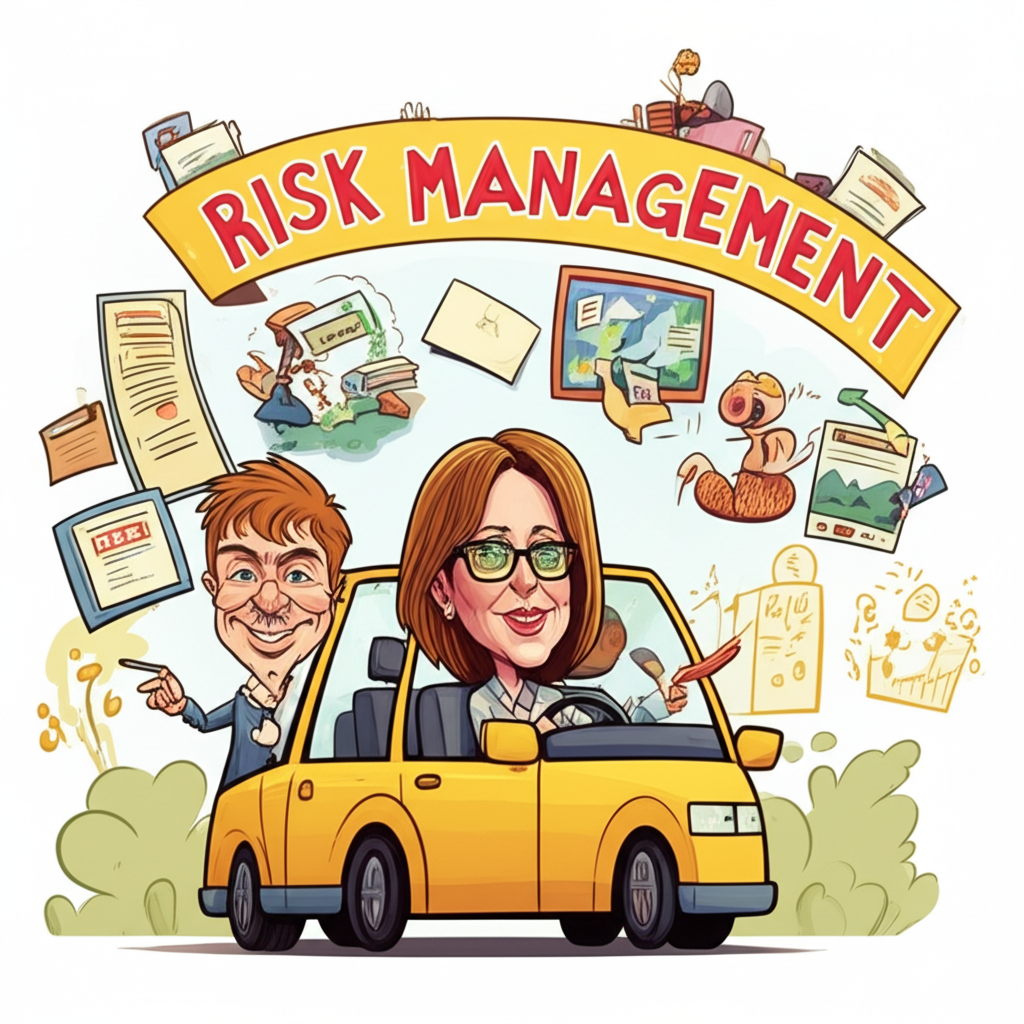
Choosing the Best Online Brokerage for You: Your Ultimate Beginner’s Guide
Taking control of your financial future by investing can feel like a monumental step. For many, the first hurdle isn’t picking the right stock, but simply figuring out where to even begin investing. This is where an online brokerage comes in. Think of it as your gateway to the financial markets, a digital platform where you can buy and sell investments like stocks, bonds, and mutual funds.
But with so many options available, how do you choose the best online brokerage for you? This comprehensive guide will break down everything a beginner needs to know, making the process clear, simple, and stress-free.
What Exactly Is an Online Brokerage?
At its core, an online brokerage is a financial institution that provides a platform for investors to buy and sell securities. In simpler terms, it’s like a bank account, but instead of holding cash, it holds your investments. Instead of going to a physical branch, you access your account and make trades through a website or a mobile app.
Before the internet, you’d typically work with a full-service broker who would execute trades on your behalf and offer personalized advice – often for a hefty fee. Online brokerages, also known as "discount brokers," have democratized investing, making it accessible and affordable for millions by allowing you to manage your own investments directly.
Why Use an Online Brokerage? The Benefits
There are several compelling reasons why online brokerages have become the go-to choice for individual investors:
- Affordability: Many online brokerages offer commission-free trading for stocks and Exchange Traded Funds (ETFs), significantly reducing the cost of investing.
- Accessibility: You can manage your investments 24/7 from anywhere with an internet connection – on your computer, tablet, or smartphone.
- Control: You have direct control over your investment decisions, research, and trades.
- Variety of Investments: Most platforms offer a wide range of investment products, catering to different goals and risk tolerances.
- Educational Resources: Many provide extensive learning materials to help you understand investing better.
Key Factors to Consider When Choosing Your Online Brokerage
Choosing the right online brokerage isn’t a one-size-fits-all decision. What’s "best" for an experienced day trader might be overwhelming for a beginner. Here’s a breakdown of the crucial factors to weigh:
1. Fees and Commissions: What Will You Pay?
This is often the first thing people look at, and for good reason. Fees can eat into your returns over time. While many brokerages now offer commission-free trading for stocks and ETFs, it’s essential to dig deeper.
- Stock & ETF Commissions: Are they truly $0? Most major players offer this now, but always confirm.
- Mutual Fund Fees: Some brokerages charge a fee to buy or sell mutual funds that aren’t on their "no-transaction-fee" (NTF) list. These can range from $20-$75 per trade.
- Options Contracts: There’s usually a per-contract fee (e.g., $0.65 per contract), even if the base commission is zero.
- Transfer Fees: If you decide to move your account to another brokerage, some charge a fee (e.g., $75) for an "Account Transfer Out" (ACAT).
- Inactivity Fees: Some brokerages might charge you if you don’t make a certain number of trades or maintain a minimum balance.
- Maintenance Fees: Less common now, but some might have an annual fee just for having an account.
- Margin Rates: If you plan to borrow money to invest (trading on margin), compare interest rates.
- Miscellaneous Fees: Look out for fees for things like paper statements, wire transfers, or live broker-assisted trades.
Beginner Tip: For most beginners focusing on long-term investing in stocks and ETFs, commission-free trading is paramount. Be wary of hidden fees that could chip away at your small investment amounts.
2. Investment Options: What Can You Buy?
Not all brokerages offer access to every type of investment. Consider what you want to invest in now, and what you might want to invest in down the road.
- Stocks: Shares of individual companies (e.g., Apple, Amazon).
- ETFs (Exchange Traded Funds): Baskets of investments (like stocks or bonds) that trade like individual stocks. They’re popular for diversification and often have low fees.
- Mutual Funds: Professionally managed collections of stocks, bonds, or other securities. Often require higher minimum investments than ETFs.
- Bonds: Loans made to governments or corporations. Generally considered less risky than stocks.
- Options: Contracts that give you the right, but not the obligation, to buy or sell an underlying asset at a specific price by a certain date. More complex and higher risk.
- Futures: Agreements to buy or sell an asset at a predetermined price at a specified time in the future. Very complex and high risk.
- Cryptocurrencies: Digital assets like Bitcoin and Ethereum. Only some traditional brokerages offer this.
- Forex (Foreign Exchange): Trading currencies. Usually requires specialized platforms.
Beginner Tip: For most new investors, access to stocks, ETFs, and potentially mutual funds is more than sufficient. Don’t worry about options or futures until you’re much more experienced.
3. Trading Platform and User Experience: Is It Easy to Use?
This is about how you interact with the brokerage. An intuitive, easy-to-navigate platform can make a huge difference, especially when you’re just starting out.
- Desktop Platform: Is the website clean, organized, and responsive? Can you easily find what you need (account balance, research tools, trade button)?
- Mobile App: Is the app user-friendly, stable, and does it offer most of the functionality of the desktop version? Many beginners prefer managing investments on their phone.
- Order Types: Can you easily place different types of orders (market orders, limit orders, stop-loss orders)?
- Charting Tools: Even if you’re not a day trader, basic charting can help you visualize price movements. Are they easy to use and customize?
- Paper Trading/Demo Accounts: Does the brokerage offer a "practice" account where you can trade with virtual money? This is invaluable for beginners to learn without risking real capital.
Beginner Tip: Look for a brokerage with a clean, uncluttered interface. If you find yourself lost trying to navigate or place a simple trade, it’s probably not the right fit. Many offer demo accounts – use them!
4. Research Tools and Resources: How Much Help Do You Get?
While you’re managing your own investments, good research tools can guide your decisions.
- Stock Screeners: Tools that allow you to filter stocks based on criteria like industry, market cap, dividend yield, etc.
- Analyst Reports: Access to reports from financial experts on specific companies.
- News Feeds: Real-time financial news relevant to your investments.
- Market Commentary: Insights and analysis from the brokerage’s own experts.
- Third-Party Research: Some brokerages integrate research from reputable sources like Morningstar or Argus.
Beginner Tip: Don’t feel overwhelmed by advanced tools. For a beginner, a good stock screener, access to basic company information, and reliable news feeds are most valuable.
5. Customer Service: Can You Get Help When You Need It?
Even the most tech-savvy investor will eventually have a question or an issue. Reliable customer support is crucial.
- Availability: What are their hours of operation? Are they available 24/7, or just during market hours?
- Channels: Do they offer phone support, live chat, email, or even in-person branches?
- Response Time: How quickly do they respond to inquiries?
- Quality of Support: Are representatives knowledgeable and helpful?
Beginner Tip: Test it out! Before fully committing, try calling their customer service line or using their chat feature with a simple question. See how long it takes and how helpful they are.
6. Educational Resources: Learn as You Go
The best brokerages don’t just facilitate trades; they empower their users to become better investors.
- Articles & Guides: Comprehensive explanations of investment concepts, strategies, and market analysis.
- Webinars & Videos: Live or recorded sessions on various investing topics.
- Tutorials: Step-by-step guides on how to use their platform and tools.
- Glossaries: Explanations of financial jargon.
Beginner Tip: If you’re new to investing, prioritize a brokerage with robust, easy-to-understand educational content. This will be invaluable as you build your knowledge.
7. Account Types Offered: What Kind of Account Do You Need?
Different financial goals require different account types.
- Taxable Brokerage Account: A standard investment account where your gains are taxed annually. Great for short-term goals or general investing.
- IRA (Individual Retirement Account): Tax-advantaged retirement accounts (Traditional or Roth). Essential for long-term retirement planning.
- Custodial Account (UGMA/UTMA): For investing on behalf of a minor.
- Specialized Accounts: Some brokerages offer 529 college savings plans, small business retirement plans, etc.
Beginner Tip: For most beginners, a standard taxable brokerage account is a good starting point. If your primary goal is retirement, make sure they offer Traditional and Roth IRAs.
8. Security and Regulation: Is Your Money Safe?
Protecting your investments is paramount. Ensure the brokerage is reputable and well-regulated.
- SIPC Protection: The Securities Investor Protection Corporation (SIPC) protects your securities and cash up to $500,000 (including $250,000 for cash) in case the brokerage firm fails. This is similar to FDIC insurance for banks. Note: SIPC protects against brokerage failure, not against market losses.
- FINRA & SEC Regulation: Ensure the brokerage is registered with and regulated by the Financial Industry Regulatory Authority (FINRA) and the Securities and Exchange Commission (SEC). These bodies oversee the financial industry.
- Security Measures: Look for features like two-factor authentication (2FA), encryption, and strong privacy policies to protect your personal and financial information.
- Reputation: What do other users say? Check reviews and news articles for any red flags.
Beginner Tip: Always confirm SIPC protection and regulatory oversight (FINRA, SEC). These are non-negotiable for any legitimate U.S. brokerage.
Steps to Choose Your Brokerage
Now that you know what to look for, here’s a simple process to make your choice:
-
Assess Your Needs & Goals:
- What kind of investor are you (beginner, intermediate)?
- What are your investment goals (retirement, house down payment, general wealth building)?
- What types of investments do you plan to make initially (stocks, ETFs)?
- What’s your budget for initial investment and ongoing contributions?
- How much support/education do you need?
-
Make a Shortlist:
- Based on your needs, identify 2-4 brokerages that seem like a good fit. Popular choices for beginners often include Fidelity, Charles Schwab, Vanguard, and E*TRADE. Robinhood is popular for its simplicity but has fewer features and educational resources.
-
Compare Key Features:
- Create a simple comparison chart or list the pros and cons of each brokerage based on the factors discussed above (fees, investment options, platform, customer service, etc.).
-
Test Drive (If Possible):
- Sign up for a free demo account if available. Explore the platform, practice placing trades, and navigate the research tools.
- Call customer service with a few questions to gauge their responsiveness and helpfulness.
-
Read Reviews (With a Grain of Salt):
- Look at reputable review sites, but remember that individual experiences can vary. Focus on recurring themes, especially regarding customer service or platform stability.
-
Make Your Decision and Start Small:
- Choose the brokerage that best aligns with your needs and comfort level.
- Don’t feel pressured to invest a large sum immediately. Start with an amount you’re comfortable with and gradually increase it as you gain confidence.
Common Mistakes to Avoid When Choosing a Brokerage
- Focusing Only on Fees: While important, don’t let $0 commissions blind you to a poor platform, limited investment options, or terrible customer service.
- Ignoring Educational Resources: Especially as a beginner, these can be a goldmine for building your investing knowledge.
- Not Checking Security & Regulation: This is non-negotiable. Always confirm SIPC protection and proper regulatory oversight.
- Choosing Based on Hype: A brokerage that’s popular on social media might not be the best fit for your long-term goals or risk tolerance.
- Overcomplicating It: For most beginners, a brokerage with a simple interface, low fees, and access to basic investments (stocks, ETFs) is all you need. You can always upgrade or open another account later.
Conclusion: Your Investing Journey Starts Here
Choosing the right online brokerage is a crucial first step on your investing journey. By carefully considering your needs, comparing fees, evaluating platform usability, and prioritizing strong security, you can confidently select a partner that will empower you to reach your financial goals.
Remember, the "best" brokerage is the one that fits your unique situation. Don’t be afraid to take your time, do your research, and then take that exciting leap into the world of investing. Your future self will thank you!




Post Comment